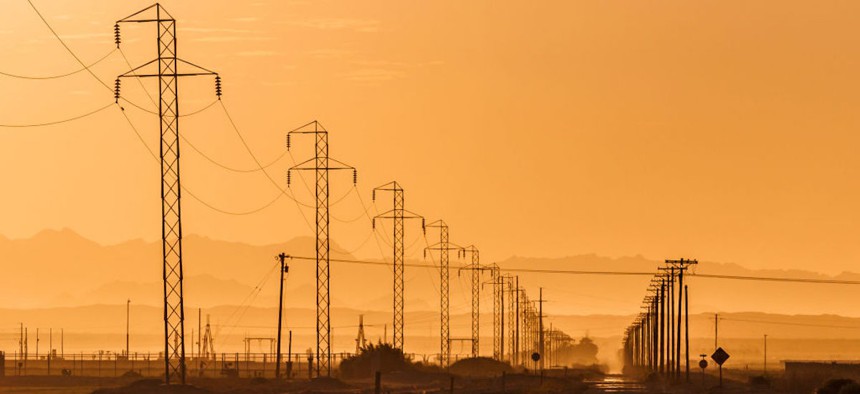Study looks at climate change effects on rural electrical grids

Mickey Strider/Loop Images/Universal Images Group via Getty Images
Investigators from universities in South Dakota, Puerto Rico, Maine and Alaska are working together for the next four years to study severe weather events and electrical grids.
This story is republished from The Daily Yonder. Read the original article.
Researchers from across the country are studying how to improve electrical grids across the country with a focus on underserved, rural communities.
Through a four-year, $750,000 grant from the National Science Foundation, South Dakota State University, University of Maine, University of Alaska Fairbanks, and University of Puerto Rico Mayague will examine how climate change affects electrical grids. The project is titled “STORM: Data-Driven Approaches for Secure Electric Grids in Communities Disproportionately Impacted by Climate Change.”
“The basic idea is to go to a few specific communities, and through community engagement, figure out what are the challenges that they are facing with regard to the impact of extreme weather on the power grid, and then solve some of those issues in terms of community outreach and engagement, designing new methods to make the grid more resilient,” said Tim Hansen, associate professor in SDSU's Department of Electrical Engineering and Computer Science and co-principal investigator on the project.
Hansen said the research project is based in strategic locations in which different weather events occur. Alaska, for example, deals with extreme cold, while Puerto Rico deals with storms and flooding.
The common issue is that all the events impact the power grid, he said. “Our focus is on power grid resiliency from different perspectives.”
As part of the project, the researchers will work with community members on engagement. Hansen told the Daily Yonder it will be a ground-up approach so see what the community is willing to adopt.
Daisy Huang is an associate professor at the University of Alaska Fairbanks and mechanical engineer. She also conducts research at the Alaska Center for Energy and Power, which looks at optimizing power, mostly in rural communities around Alaska. She said the rural communities are mostly not connected to the state grid.
“So they're all on their own diesel fired power plants. And so we look at ways to integrate renewables [and] optimize their diesel for maximum efficiency,” she told the Daily Yonder.
Huang said she is also interested in creating educational programs around STEM.
“The idea is looking from a community perspective - what their energy needs are, and how we can translate that - in parallel - developing educational programs around kids learning about energy systems, [like] engineering or STEM in general, math, physics.”
There will also be a virtual reality lab for remote power and energy research studies between all the participating institutions, Hansen told the Yonder.
He said that many of the researchers on the project are young investigators. “It's a very good opportunity for the [National Science Foundation] to really build up the mentorship, and really build a lot of people's long-term careers off of the back of this,” he added.
![]()





